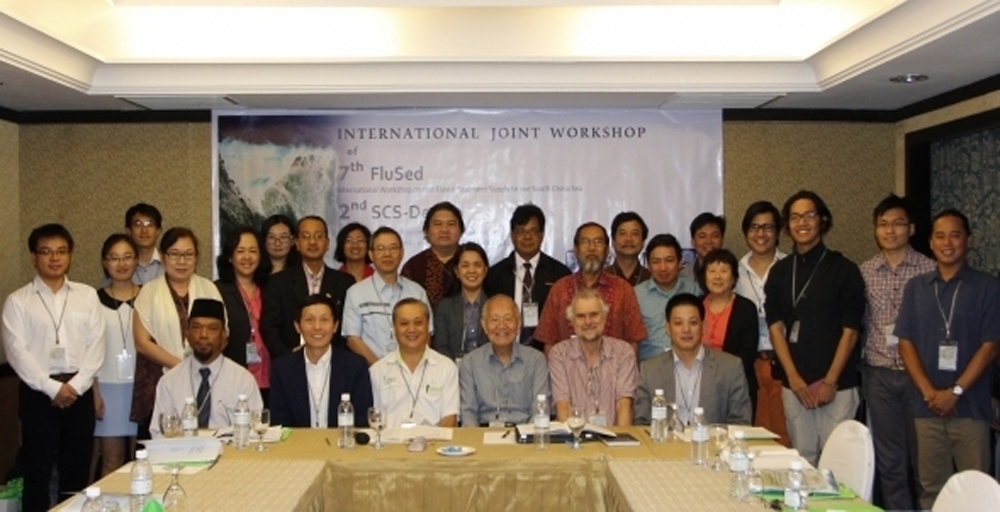The 2ndInternational Workshop on the South China Sea Deep and the 7thInternational Workshop on the Fluvial Sediment Supply to the South China Sea were held in Kota Kinabalu, Malaysia not long ago. Twenty-nine scholars from South China Sea from Mainland China, Germany, Indonesia, Malaysia, Philippines, Taiwan and Vietnam took part in the workshops. Prof. WANG Pinxian, Member of CAS, from our university attended the workshops and delivered a speech.
In his speech, Prof. WANG introduced the crucial discoveries and progress of the research program of South China Sea Deep, and analyzed the necessity and urgency of seeking scientific solutions in South China Sea basin from the geologic record of surrounding islands and lands.
Participants exchanged opinions and discussed many scientific issues on South China Sea. They held that research should focus on the origin of South China Sea, its history of extension and evolution and its process of subduction. Through comparison of geologic record of ocean and land, scientific evidences should be provided to solve such problems as the existence and nature of proto-South China Sea, major hiatus of South China Sea, the timing and nature of magmatism and volcanism, the development of carbonate platform, the formation of Manila trench and Bashi Channel. They all agreed that more seminars should be held to further enhance interdisciplinary collaboration and international communication in the future.

With the help of local counterparts, scholars from our university made field studies and comprehensive researches of sedimentology, biostratigraphy and paleomagnetism for five days in Sabah, Borneo, Malaysia.
The workshop held by South China Sea Deep Foundation was a new measure to achieve the goal of enhancing international communication and promoting interdisciplinary collaboration, after the 1stInternational Workshop on South China Sea Deep held in Shanghai, June 2014. Meanwhile, it was also the annual workshop of International Workshop on the Fluvial Sediment Supply to the South China Sea. The workshop was based on the program of Fluvial Sediment Supply to the South China Sea (WESTPAC-FluSed, 2008-2015), which was approved by IOC/WESTPAC of UNESCO, May 2008. The executive work group of the program led by Tongji University were composed of eight scientists from Cambodia, China, Indonesia, Malaysia, Singapore, Thailand, the Philippines and Vietnam. They worked together to conduct observation and keep record of fluvial sediment supply to the South China Sea, and of its processes of transportation and deposition in order to reveal how fluvial sediment controlled the regional environmental changes of South China Sea.
Translated by May Language Studio based upon
http://news.tongji.edu.cn/classid-6-newsid-45847-t-show.html